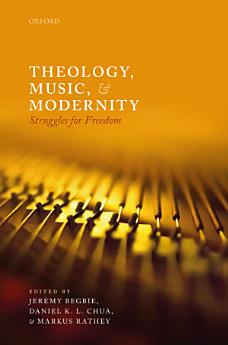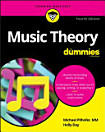Theology, Music, and Modernity: Struggles for Freedom
Jeremy Begbie · Daniel K L Chua · Markus Rathey
Feb 2021 · Oxford University Press
Ebook
400
Pages
family_home
Eligible
info
reportRatings and reviews aren’t verified Learn More
About this ebook
Theology, Music, and Modernity addresses the question: how can the study of music contribute to a theological reading of modernity? It has grown out of the conviction that music has often been ignored in narrations of modernity's theological struggles. Featuring contributions from an international team of distinguished theologians, musicologists, and music theorists, the volume shows how music—and discourse about music—has remarkable powers to bring to light the theological currents that have shaped modern culture. It focuses on the concept of freedom, concentrating on the years 1740-1850, a period when freedom—especially religious and political freedom-became a burning matter of concern in virtually every stratum of Western society. The collection is divided into four sections, each section focusing on a key phenomenon of this period—the rise of the concept of 'revolutionary' freedom; the move of music from church to concert hall; the cry for eschatological justice in the work of black hymn-writer and church leader Richard Allen; and the often fierce tensions between music and language. There is a particular concern to draw on a distinctively 'Scriptural imagination' (especially the theme of New Creation) in order to elicit the key issues at stake, and to suggest constructive ways forward for a contemporary Christian theological engagement with the legacies of modernity today.
About the author
Jeremy Begbie is Thomas A. Langford Distinguished Professor of Theology at Duke University. Daniel K. L. Chua is Mr and Mrs Hung Hing-Ying Professor in the Arts and Professor of Music at the University of Hong Kong. Markus Rathey is Robert S. Tangeman Professor in the Practice of Music History at Yale University.
Rate this ebook
Tell us what you think.
Reading information
Smartphones and tablets
Install the Google Play Books app for Android and iPad/iPhone. It syncs automatically with your account and allows you to read online or offline wherever you are.
Laptops and computers
You can listen to audiobooks purchased on Google Play using your computer's web browser.
eReaders and other devices
To read on e-ink devices like Kobo eReaders, you'll need to download a file and transfer it to your device. Follow the detailed Help Center instructions to transfer the files to supported eReaders.





